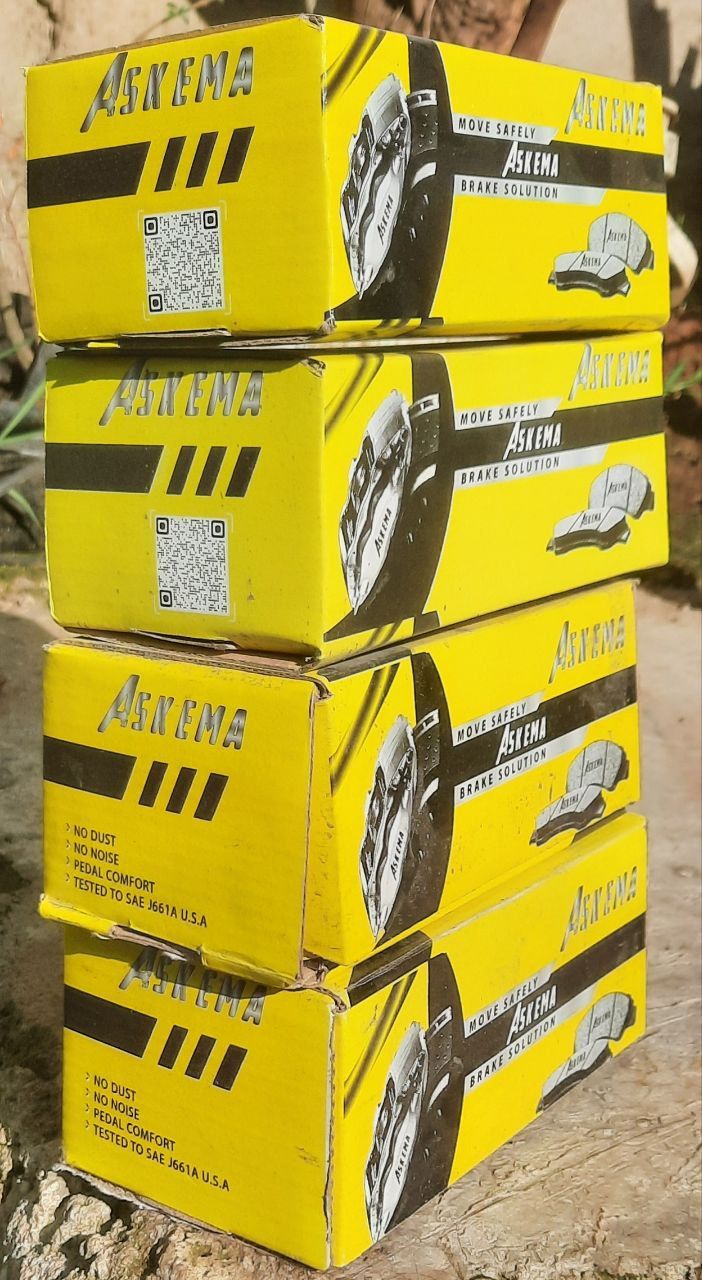

Daniel Metaferiya
Addis Ababa, Ethiopia

Behailu Seboka, born and raised in the capital, spent his childhood working around garages to earn pocket money. “I used to go there on summer breaks and mid-breaks since I was in eighth grade,” says Behailu. “I know how expensive these car leg problems can be, especially if there are damages to the wheel disk,” he states.
During his time at Mekelle University in the late 2010s, Behailu delved deep into material engineering. He spent his time in the lab experimenting with his ideas, even during the summers.
Behailu was particularly interested in making brake pads from bones, a topic of his thesis. Brake pads are a component of disc brakes used in automotive and other applications.
These steel-backed pads have a friction material bonded to the surface that contacts the disc brake rotor. They function by converting a car’s kinetic energy into thermal energy through friction. Due to wear and tear, brake pads are one of the most frequently replaced parts in a braking system.
Globally, researchers are actively seeking ways to utilize industrial or agricultural waste as a source of raw materials for brake pad production.
Brake pad prices in the capital vary based on the vehicle and the quality of the products. Behailu notes, ‘They can be found in the market, ranging from 1000 birr to 12,000 birr.'”
Moreover, there are numerous old cars in the capital for which spare parts are not readily available. This was what Behailu was targeting.
Related- In Ethiopia’s Rift Valley, an SME Purifies Water Using Bones
Behailu wasn’t alone in his pursuit. Along with three other students, they embarked on a project to create bone-based brake pads. Bereket recounted how they collected bones, cleaned out the marrow, and crushed them using an old machine found on campus. However, the resulting particle size wasn’t ideal.
Undeterred, Behailu secured a local crusher and hired the three students part-time to achieve the desired 0.01mm particle size. The crushed bones were then baked in a chamber at 400 degrees Celsius.
Since the baked bones lacked the metallic properties needed for optimal braking performance, Behailu would cut the final product to size and attach it to a steel backing plate sourced from local garages.
However, convincing mechanics and drivers to adopt his innovative product proved challenging. “I went to every garage in Mekelle promoting my elastic brake pads, but there was no initial interest,” Behailu remembers. His first customer was the owner of an old Tata pickup truck. Behailu even put his studies on hold for a while to focus on this initial trial.
Following graduation, Behailu gained experience working as a diagnosis engineer for over a year at two different companies. But, his entrepreneurial spirit remained strong. He joined an equb, a traditional savings scheme, to gather funds for basic tools. He then secured an additional loan of 150,000 birr from a financial institution and launched his own business.
In 2022, Behailu, along with his friend Bethlehem Ayele, co-founded Askema Engineering, a company dedicated to producing eco-friendly brake pads made from crushed bones. The name “Askema” draws inspiration from the traditional headwear worn by monks in monasteries.

Just a year and a half ago, Behailu was personally collecting bones from Kera. The bones were then buried for two to four months to ensure complete marrow removal. Once the curing period was complete, the bones were unearthed, washed, and crushed.
As the business grew, Behailu implemented a bi-weekly bone collection routine, ensuring a steady supply of raw materials.
Askema manufactures brake pads for various vehicles, ranging from trucks to electric vehicles. Priced between 400 and 1500 birr, their products are significantly more affordable than market alternatives. “We’ve already sold over 2,400 brake pads,” he informed Shega.”
Initially, Behailu and Bethlehem operated from a rented space within the Philipos Industry Zone near Torhailloch. However, infrastructure issues like unreliable electricity posed significant challenges. Consequently, Behailu relocated his operations to his family home, utilizing the backyard space as a workshop.
Behailu has been awarded 150 thousand birr for his innovation at the Biruh startup competition. Currently, the organization offers services to companies like Gold Water and individual car owners, particularly those with older Toyotas.
Askema Engineering now employs six individuals, while several others are involved in the bone collection process and earn income from their operation.